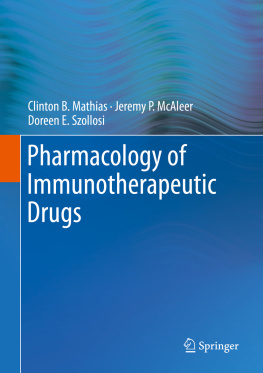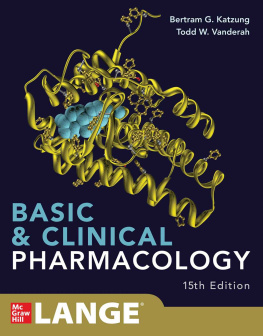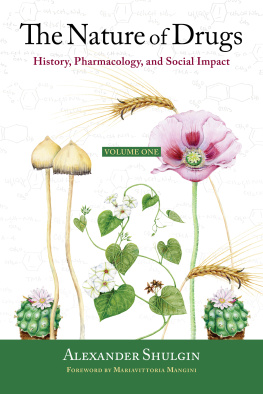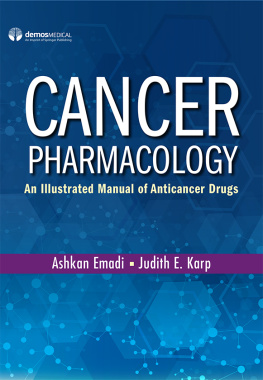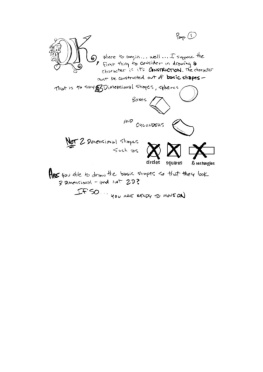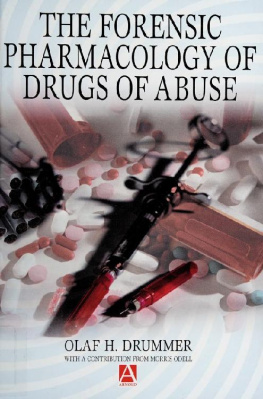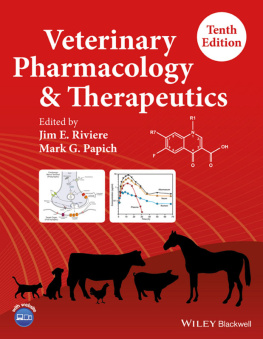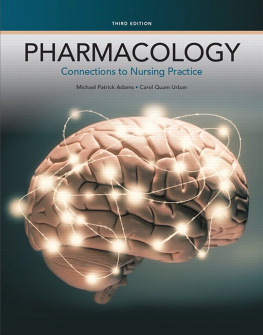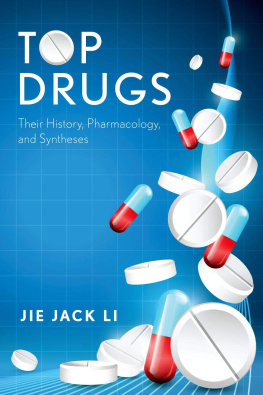Clinton B. Mathias - Pharmacology of Immunotherapeutic Drugs
Here you can read online Clinton B. Mathias - Pharmacology of Immunotherapeutic Drugs full text of the book (entire story) in english for free. Download pdf and epub, get meaning, cover and reviews about this ebook. year: 2020, publisher: Springer International Publishing, genre: Home and family. Description of the work, (preface) as well as reviews are available. Best literature library LitArk.com created for fans of good reading and offers a wide selection of genres:
Romance novel
Science fiction
Adventure
Detective
Science
History
Home and family
Prose
Art
Politics
Computer
Non-fiction
Religion
Business
Children
Humor
Choose a favorite category and find really read worthwhile books. Enjoy immersion in the world of imagination, feel the emotions of the characters or learn something new for yourself, make an fascinating discovery.
- Book:Pharmacology of Immunotherapeutic Drugs
- Author:
- Publisher:Springer International Publishing
- Genre:
- Year:2020
- Rating:3 / 5
- Favourites:Add to favourites
- Your mark:
- 60
- 1
- 2
- 3
- 4
- 5
Pharmacology of Immunotherapeutic Drugs: summary, description and annotation
We offer to read an annotation, description, summary or preface (depends on what the author of the book "Pharmacology of Immunotherapeutic Drugs" wrote himself). If you haven't found the necessary information about the book — write in the comments, we will try to find it.
Pharmacology of Immunotherapeutic Drugs — read online for free the complete book (whole text) full work
Below is the text of the book, divided by pages. System saving the place of the last page read, allows you to conveniently read the book "Pharmacology of Immunotherapeutic Drugs" online for free, without having to search again every time where you left off. Put a bookmark, and you can go to the page where you finished reading at any time.
Font size:
Interval:
Bookmark:
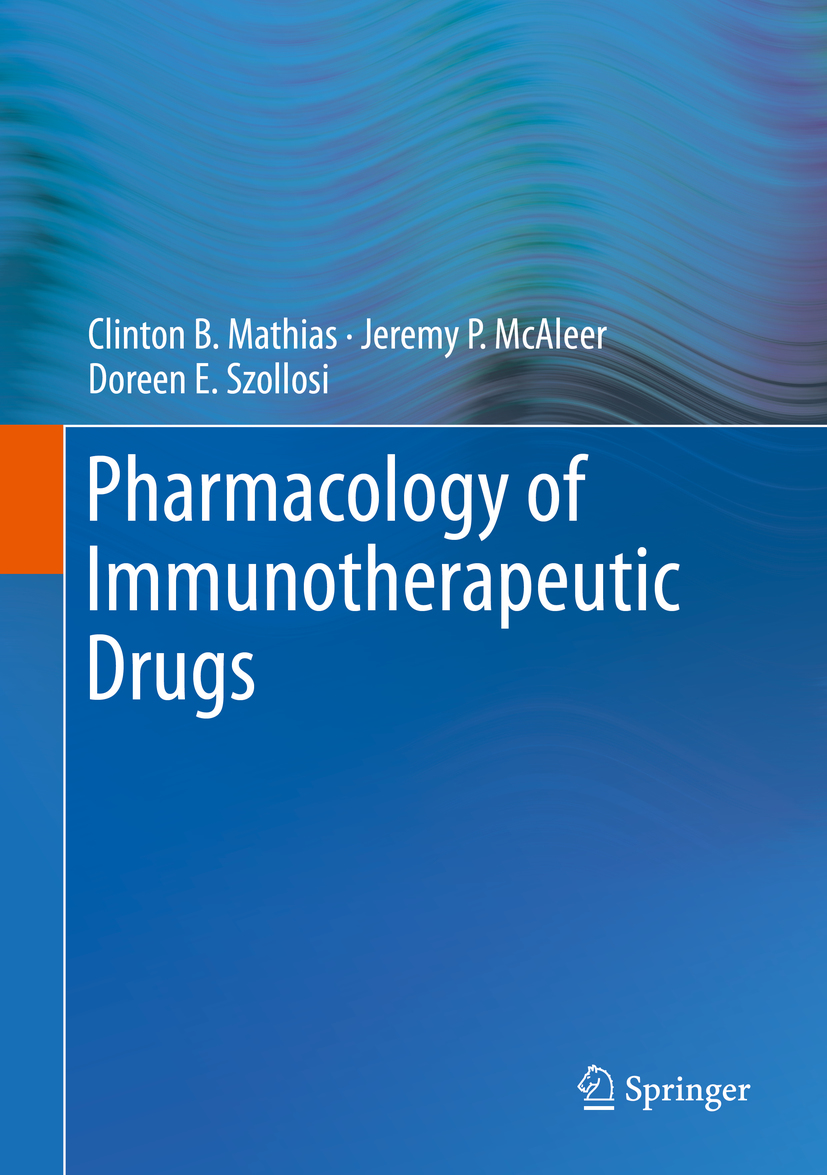

This Springer imprint is published by the registered company Springer Nature Switzerland AG
The registered company address is: Gewerbestrasse 11, 6330 Cham, Switzerland
The human immune system is an intricate network of cells and molecules that is critical for our survival and protects our bodies from damage by pathogens, toxins, and other foreign substances. Protection from infection and other injuries prolongs the life of individuals and contributes to their overall health. In contrast, dysregulated immune responses that attack self- antigens or react to harmless substances cause damage to host tissues and induce the development of disease.
Work done by immunologists over the last few decades has revealed a remarkable complexity underlying the mechanisms by which the immune system protects us from infectious organisms while simultaneously avoiding collateral tissue damage. These studies suggest new and hitherto unappreciated roles for many immune cells and molecules in both host protection and disease development, providing novel insights into the mechanisms by which immune cells modulate physiological functions. Chronic inflammation is now known to be causative or a co-culprit in a number of conditions not typically associated with inflammation, including cardiovascular insults (atherosclerosis, coronary artery disease), neurological diseases (Alzheimers disease, multiple sclerosis ), type 2 diabetes, and cancer.
These insights and developments have led to the investigation of a number of immune system components as drug targets for therapeutic purposes. Over the years, this has resulted in the approval by the Food and Drug Administration of several immune-modulating drugs for the treatment of diverse diseases ranging from asthma to cancer. These treatments include general immunosuppressants and antiproliferative agents as well as targeted therapies aimed at modulating specific components of the immune system. This latter category includes various biologics, such as monoclonal antibodies, small molecules, and recombinant cytokines . The immunological principles underlying the activity of these drugs as well as their mechanisms of action is increasingly becoming an important component of health sciences education, including professions such as medicine, pharmacy, and nursing.
We wrote The Pharmacology of Immunotherapeutic Drugs in order to bridge the gap between basic science and medical education related to disorders of the immune system. While most pathophysiology and pharmacology textbooks aimed at health science students focus on disease pathogenesis and treatments, there is a dearth of textbooks that are devoted to the immunological mechanisms of disease development and their therapeutic treatment. This is important considering the multitude of immunotherapeutic drugs that have been recently approved for the treatment of a wide variety of diseases. Our book is intended to be a reference for both basic immunologists and clinicians, including medical doctors, pharmacists, and nurses, with the goal of enhancing our understanding of the complexity of the interactions between the immune system and disease. We are not only authors but also teachers, scientists, and lifelong students of immunology who desire to share our passion for immunology with others in the health sciences.
The book opens with a general overview of the immune system, examining the link between inflammation and the onset of disease and providing a synopsis of various pharmacological targets in the context of immunotherapy. While we do cover the basic principles and concepts involved in immunology wherever applicable, it is presupposed that the student will have had prior instruction in basic immunology. A unique feature of this chapter is the inclusion of a comprehensive table listing the various classes and types of immunotherapeutic drugs that are currently approved for the treatment of diseases. Another highlight is a table containing a list of all currently known cytokines and their roles in immune development and function. Lastly, the suggested reading list at the end of Chap. highlights major discoveries in the field of immunology during the last two centuries that have advanced our current understanding of immunology and medicine.
In Chaps. , we discuss the role of immunomodulatory agents in fighting infectious diseases and cancers.
Our book is structured to easily navigate through drug information related to the diseases. Each chapter begins with a table summarizing the drugs discussed in the chapter and their classification. This is followed by a summary of the role of the immune system in health and disease and mechanistic information on how the medications work to treat each disease. In order to provide a historical perspective on drug development, including serendipitous discoveries, trials, and tribulations, From Bench to Bedside sections are included at the end of each chapter. Finally, several clinical applications are highlighted in case studies and practice questions that have been added to the chapters.
The development of this textbook has been a long process, and we are grateful to everyone who has played a role in seeing it through completion. We are especially grateful to our family members, who encouraged and supported us in this endeavor throughout the last 2 years. We are also thankful to our colleagues and co-workers, many of whom were willing to review material and provide suggestions and ideas. We are particularly thankful for our coauthors who contributed to chapter material, including Chaps.. A number of students and fellows were willing to read the chapters and make figures and tables. We are grateful for their assistance. We are also thankful to our colleagues who provided materials for case studies, bench to bedside, and practice questions. Lastly, we are thankful to our editors at Springer, who have provided guidance and direction throughout the process.
Font size:
Interval:
Bookmark:
Similar books «Pharmacology of Immunotherapeutic Drugs»
Look at similar books to Pharmacology of Immunotherapeutic Drugs. We have selected literature similar in name and meaning in the hope of providing readers with more options to find new, interesting, not yet read works.
Discussion, reviews of the book Pharmacology of Immunotherapeutic Drugs and just readers' own opinions. Leave your comments, write what you think about the work, its meaning or the main characters. Specify what exactly you liked and what you didn't like, and why you think so.

